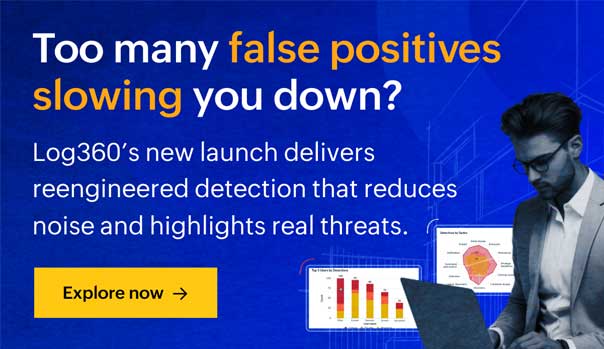File integrity monitoring (FIM) helps organizations comply with both regulatory requirements and industry compliance frameworks. It ensures file security and integrity by monitoring the files and folders for any unauthorized changes, accesses, or deletions. This helps organizations detect and respond to security incidents, data breaches, and compliance violations in a timely manner.
FIM can help organizations meet compliance requirements in the following ways:
1. Data security: FIM assists organizations in protecting sensitive data by monitoring all changes to important files, folders, and configurations. This is essential for complying with data security requirements outlined in different regulations.
2. Threat detection and response: Real-time monitoring and alerting capabilities offered by FIM solutions help organizations quickly identify and address security incidents or malicious activity. Taking a proactive approach is critical for rules that mandate incident detection and response protocols.
3. Auditing and reporting: Organizations are frequently mandated by compliance frameworks to keep thorough records of all security-related actions for the purpose of reporting and auditing in the case of a breach. In order to prove compliance during audits and regulatory inspections, FIM-enabled SIEM solutions provide thorough audit trails of historical file modifications and access events.
4. Regulatory requirements: Some regulations explicitly require the implementation of FIM as part of compliance efforts. For example, the PCI DSS (Requirement 11.5), HIPAA (45 CFR 164.312(b)), and the NIST SP 800-53 (SI-7) all recommend or mandate FIM as a security control to protect sensitive data
5. A security best practice: FIM is frequently regarded as a best practice for improving data security and integrity, even in situations where it is not specifically mandated by regulations. Due to its proactive approach to monitoring important files, directories, and configurations for unauthorized modifications, FIM is recognized as a best practice for improving data security and integrity.
Organizations can promptly identify and address security incidents or data tampering attempts by using SIEM solutions with FIM capabilities, which continuously look for changes made to sensitive data. This real-time monitoring capability not only helps organizations identify potential threats promptly but also prevents unauthorized modifications to sensitive information, preserving integrity and reliability. Moreover, FIM aids in forensic investigations by offering comprehensive audit trails of file modifications and access events.
Let's see how FIM helps organizations comply with the following regulatory mandates:
Sarbanes-Oxley Act (SOX)
ince SOX is primarily focused on internal controls and financial reporting, FIM can be pertinent in the context of SOX compliance, especially for ensuring the integrity and security of financial data.
FIM can help with SOX compliance in the following ways:
Section 302: Corporate Responsibility for Financial Reports requires that the CEO and CFO certify the accuracy of financial reports and the effectiveness of internal controls. It requires companies to maintain accurate and trustworthy financial reports.
By identifying unauthorized or unexpected modifications to crucial files and configurations, FIM contributes to the protection of financial data integrity. This helps businesses comply with section 302 of SOX.
With ManageEngine Log360, you can choose the business-critical files you want to monitor. You can also design templates (Fig. 1) to indicate which file and folder locations require monitoring. For monitoring purposes, you can use filters to include or exclude files, folders, and subfolders. You can use these templates on as many devices as needed.
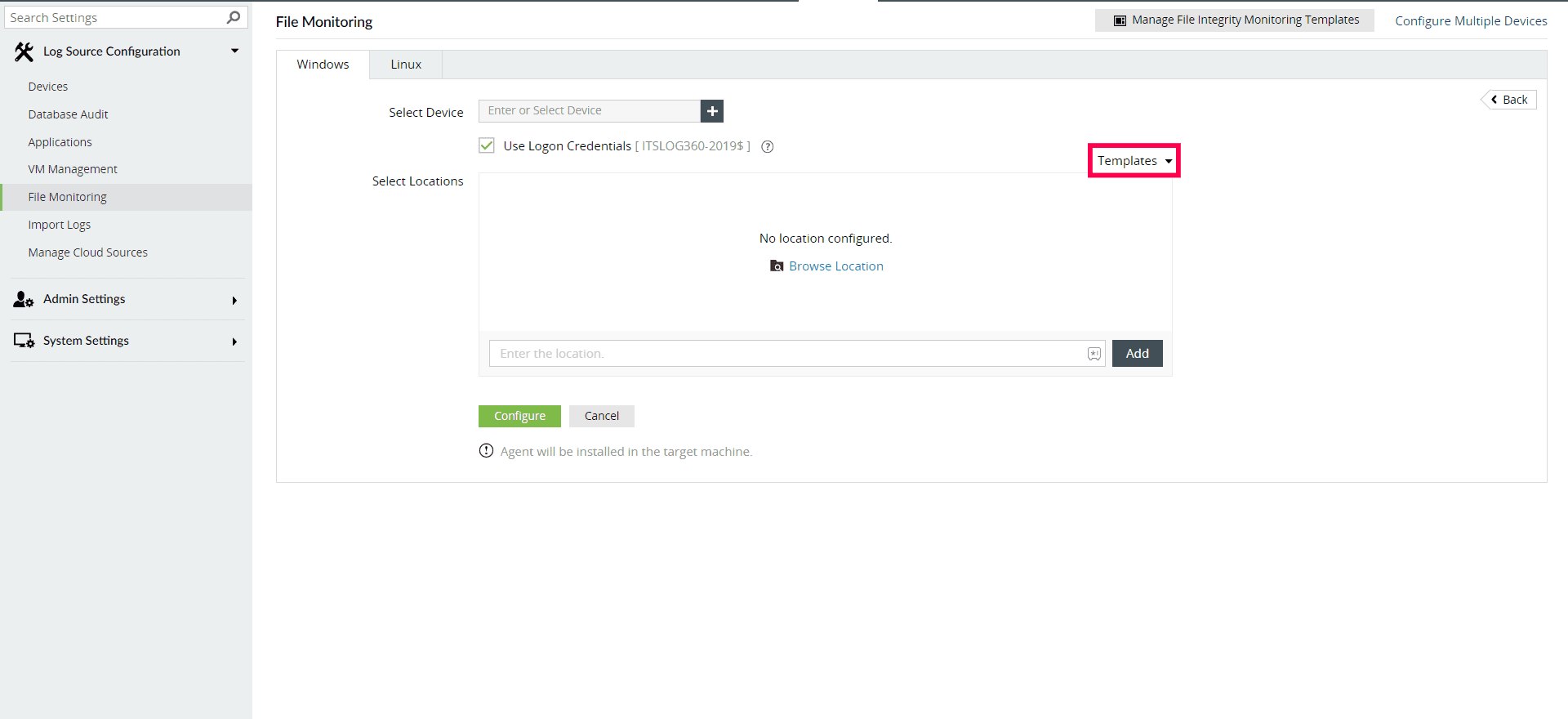
Figure 1: Choosing the files to be monitored using Log360
Section 404: Management Assessment of Internal Controls mandates an annual assessment of internal controls over financial reporting and the effectiveness of those controls. Companies must establish and maintain efficient internal controls over financial reporting to comply with this section.
Since FIM offers ongoing observation and auditing capabilities, it can be considered an internal control. FIM contributes to the strengthening of internal controls for prevention of financial fraud and misstatements by quickly identifying illegal modifications.
Log360 generates thorough reports (Fig. 2) with accurate information of file creations, deletions, modifications, permission changes, operation changes, and more, in multiple formats, including CSV and PDF. You can automatically receive the reports at regular intervals with the help of flexible report scheduling.
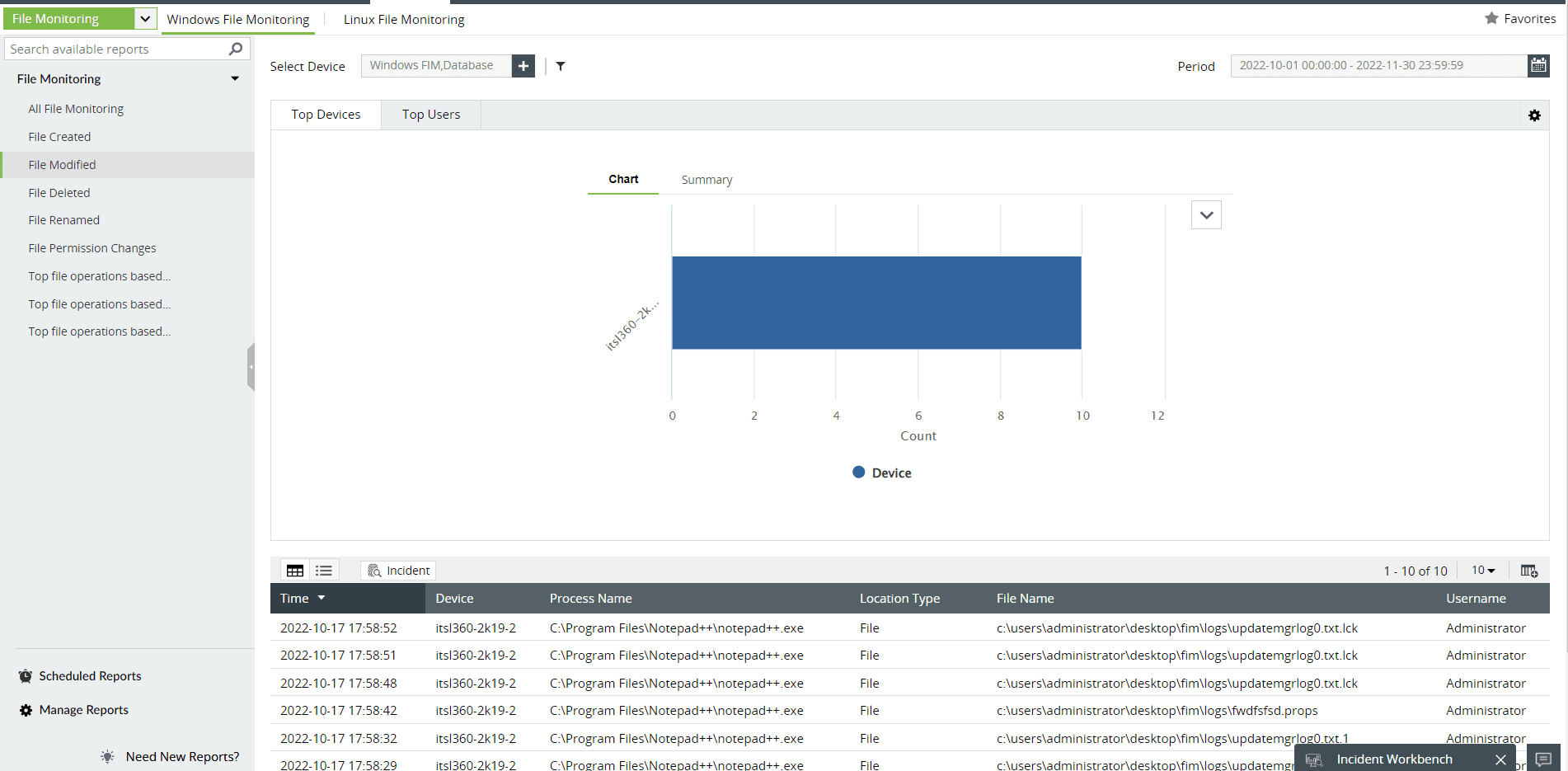
Figure 2: FIM reports in Log360
Section 409: Real-Time Issuer Disclosures requires real-time disclosure of material changes in financial conditions or operations.
Protecting private financial data from tampering or unauthorized access is another aspect of SOX compliance. By keeping an eye out for any illegal modifications to important files or system configurations, FIM contributes to increased security. Companies may meet this SOX requirement for data security by utilizing FIM's fast detection and response to security problems.
With Log360 you can set up alerts to instantly get notifications about the changes made to files and folders. Also, an integrated ticketing module from Log360's end-to-end incident management system assists in assigning tickets to security administrators, monitoring their progress, and ensuring accountability throughout the incident resolution process (Fig. 3).
Log360 also includes an automatic remediation framework that can associate workflows with alert profiles. These workflows get executed automatically when a correlation alert is triggered for swift incident remediation.
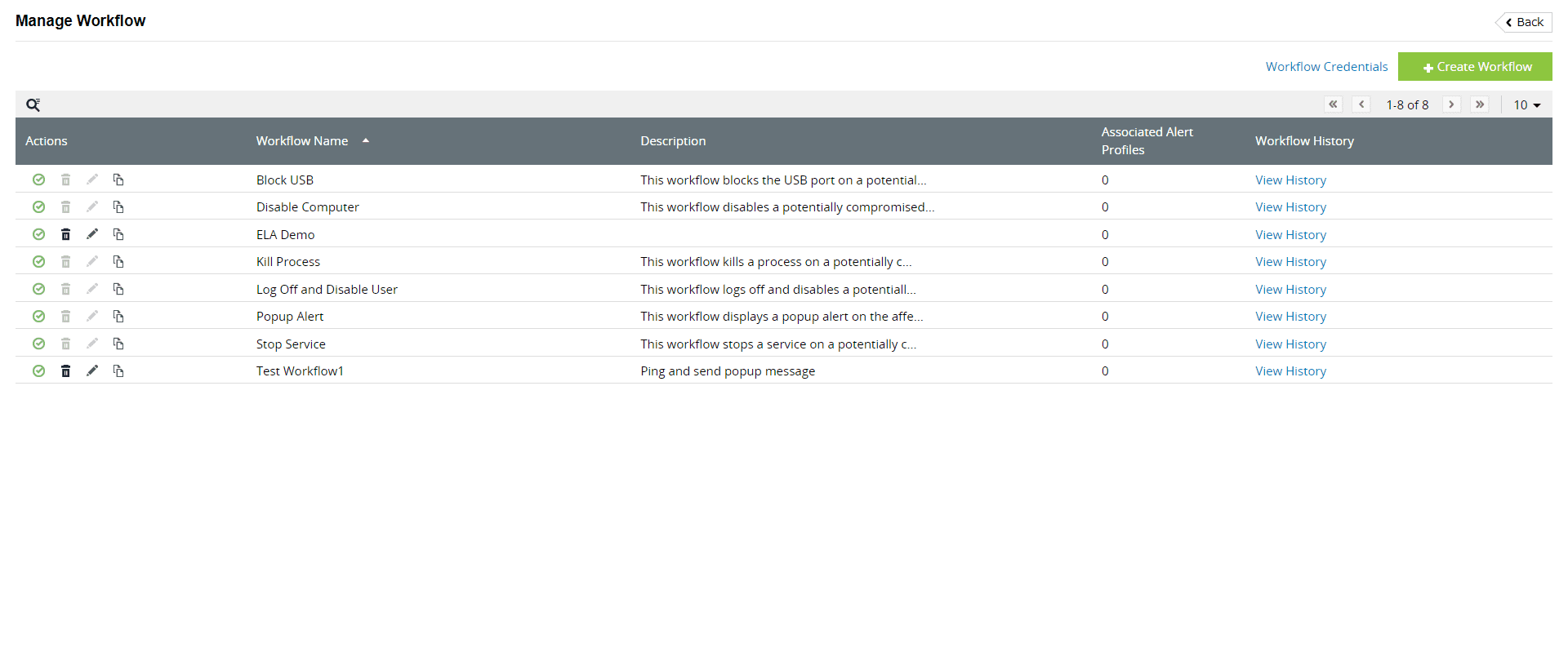
Figure 3: FIM incident remediation workflow in Log360
Health Insurance Portability and Accountability Act (HIPAA)
FIM can play a crucial role in helping organizations comply with HIPAA's security and privacy requirements.
Section 164.312(c)(1) of HIPAA requires covered entities to implement policies and procedures to protect ePHI from improper alteration or destruction.
Section 164.308(a)(5)(ii)(C) involves implementing procedures for monitoring login attempts and reporting discrepancies.
Section 164.308(a)(6)(ii) requires procedures for identifying and responding to security incidents, including mitigating harmful effects and documenting the incidents and their outcomes.
FIM contributes to data integrity and guarantees that patient information is correct and dependable by quickly identifying and offering real-time alerts and audit logs of file changes for any unauthorized or unexpected modifications to important files, directories, and configurations.
Log360 provides real-time event alerts for important updates, including changes in rules or access policies for database-stored files and folders.
Also, FIM provides detailed records and reports of all file changes, including who made the change and when. During internal audits, regulatory inspections, or investigations into security events, these audit trails can be used to show adherence to HIPAA's security criteria.
Log360 helps organizations adhere to HIPAA's system events audit requirement and ensure network security by monitoring system activities with audit-ready reports (Fig. 4).
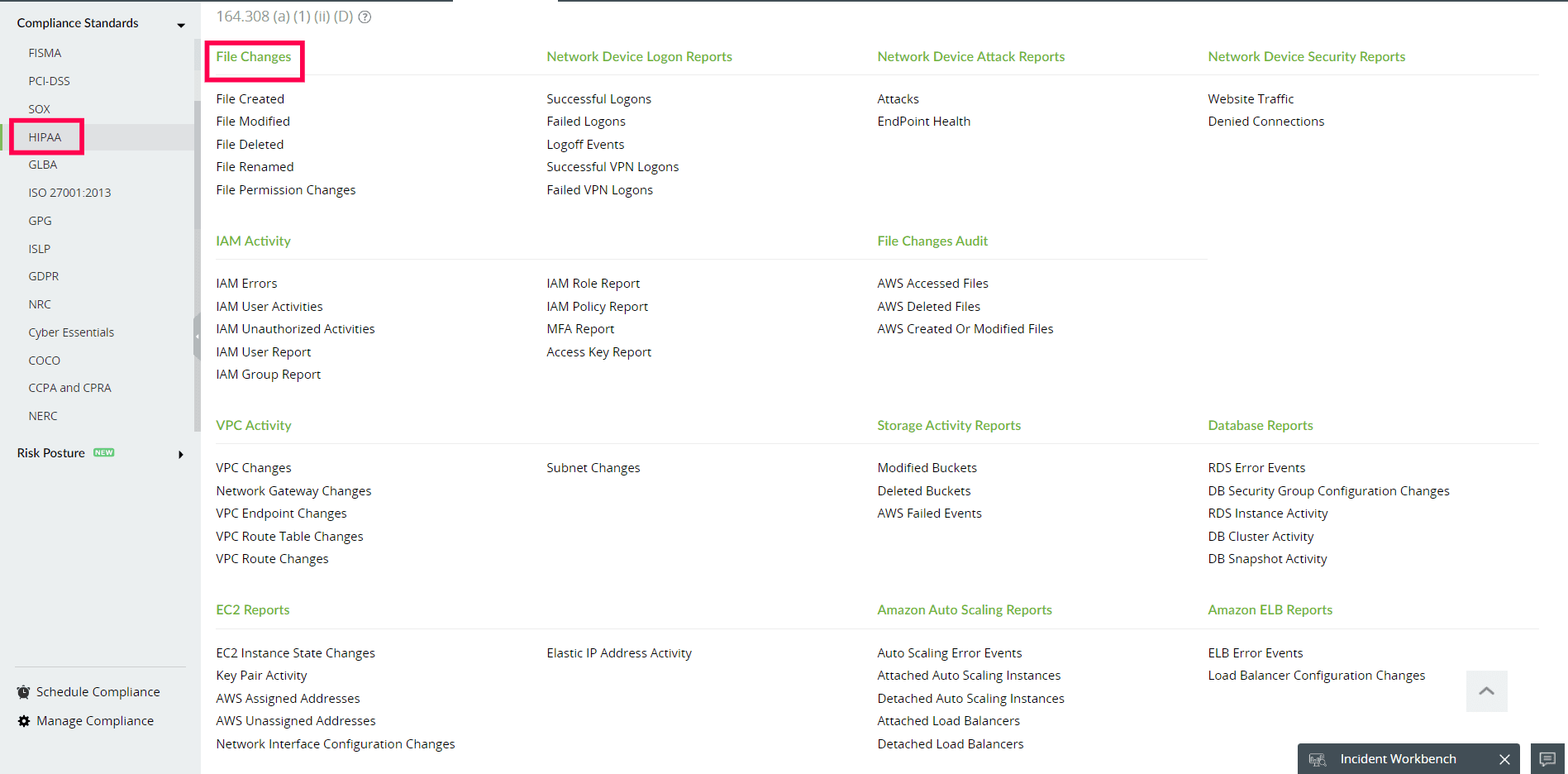
Figure 4: HIPAA compliance reports in Log360
The General Data Protection Regulation (GDPR)
Article 51 (f) of the GDPR mandates organizations to prevent unauthorized processing. For this, they need to set up security configurations and monitor the changes to these configurations to detect unauthorized access and processes. Organizations also need to audit all the operations performed on personal data to ensure the processes are carried out in a legitimate manner.
FIM and column integrity monitoring for databases are two features that Log360 offers to make sure that personal information is safe from security risks and unwanted access. Any deviation from predetermined alert criteria will trigger an alert. This includes the creation of new files, modifications, renaming, and deletions.
Furthermore, Log360 gathers all relevant information into FIM reports and performs thorough audit trials (Fig. 5) of user login and permission modifications made to file servers that store personal data. With these features, organizations can ensure that the confidentiality and integrity of their systems are not jeopardized.
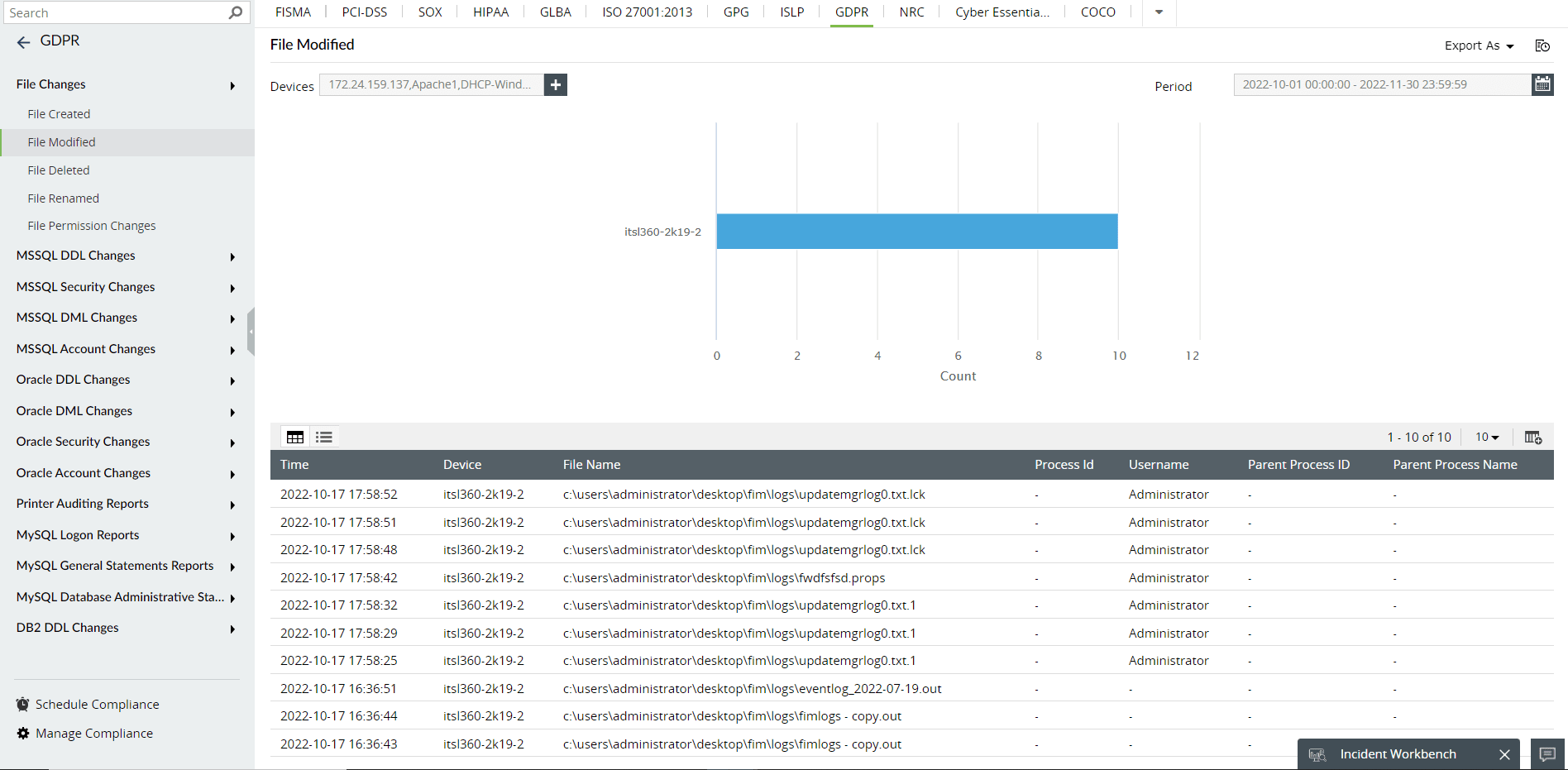
Figure 5: GDPR reports on file modifications in Log360
Article 33 (1) of the GDPR mandates that data breaches should be reported to supervisory authorities within 72 hours.
Effective incident response and data breach detection are facilitated by the combination of Log360's advanced threat intelligence capability and the MITRE ATT&CK® framework. The solution produces thorough incident reports that are useful for evaluating the impact. Moreover, use Log360's real-time alerting tool to receive real-time notifications on correlation and GDPR breach violations, so you can report data breaches to higher authorities as soon as possible—ideally within 72 hours of the incident.
The National Institute of Standards and Technology (NIST)
Security and Privacy Controls for Federal Information Systems and Organizations, NIST Special Publication 800-53, is a thorough list of security measures that federal agencies and organizations can employ to safeguard their information systems. FIM is included as a recommended control within the publication. Specifically, FIM falls under the category of System and Communications Protection and the control SI-7: Software, Firmware, and Information Integrity.
FIM aligns with several control families within NIST SP 800-53, including Configuration Management (CM), Audit and Accountability (AU), and System and Communications Protection (SC), by providing capabilities for baseline configuration management, audit trail generation, and real-time monitoring (Fig. 6).
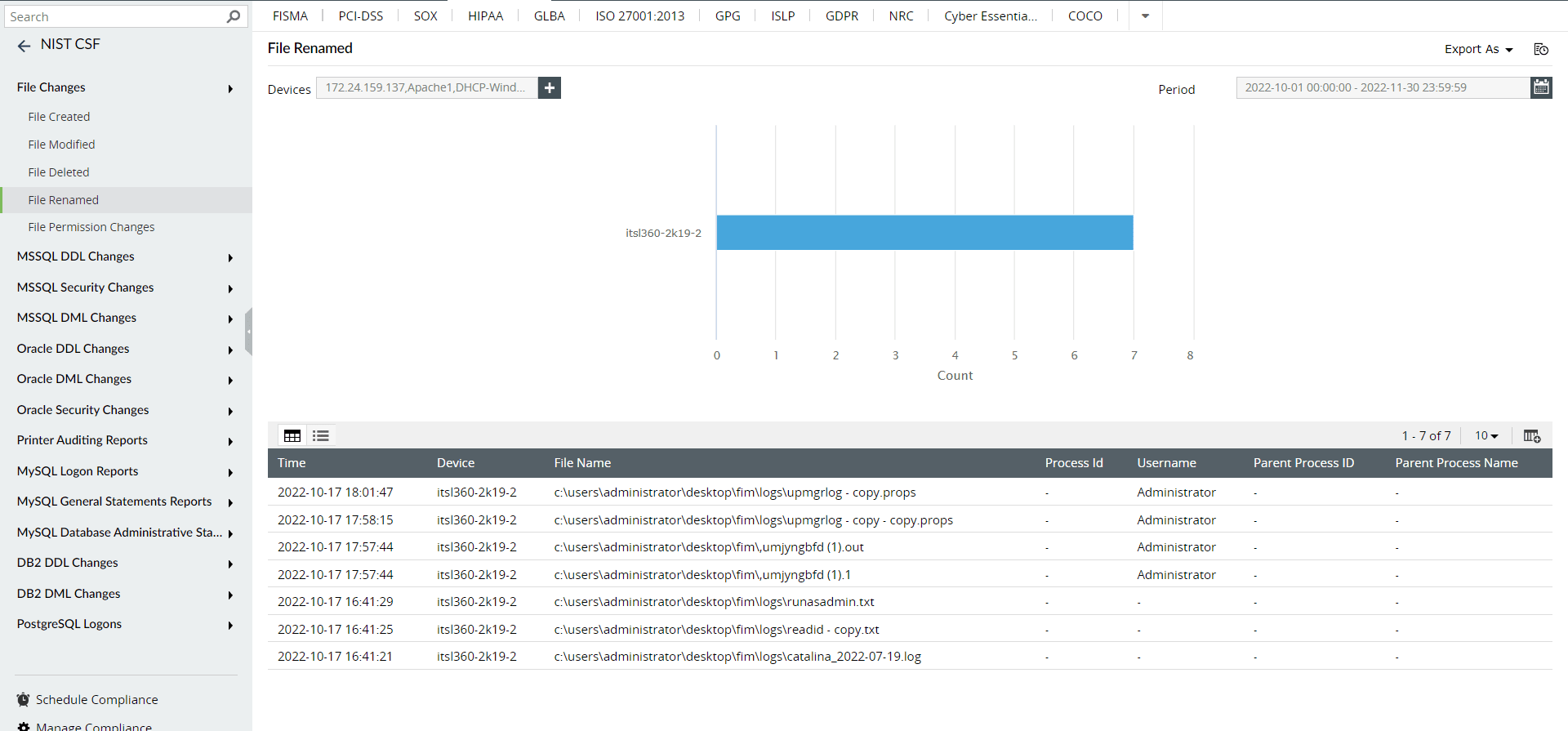
Figure 6: NIST reports on modifications made to files in Log360
ISO 27001 is an international standard for information security management systems (ISMS).
The ISO 27001 A. 12.4. 1: Event Logging report is related to event logs recording user activities, exceptions, faults and information security events that shall be produced, kept and regularly reviewed.
Log360 can help organizations comply with ISO 27001 (Fig. 7). The mandate requires organizations to implement appropriate controls to detect unauthorized changes to critical files and folders. Log360's FIM feature can help organizations achieve this requirement by tracking and alerting on changes made to files, ensuring the integrity of their systems and data.
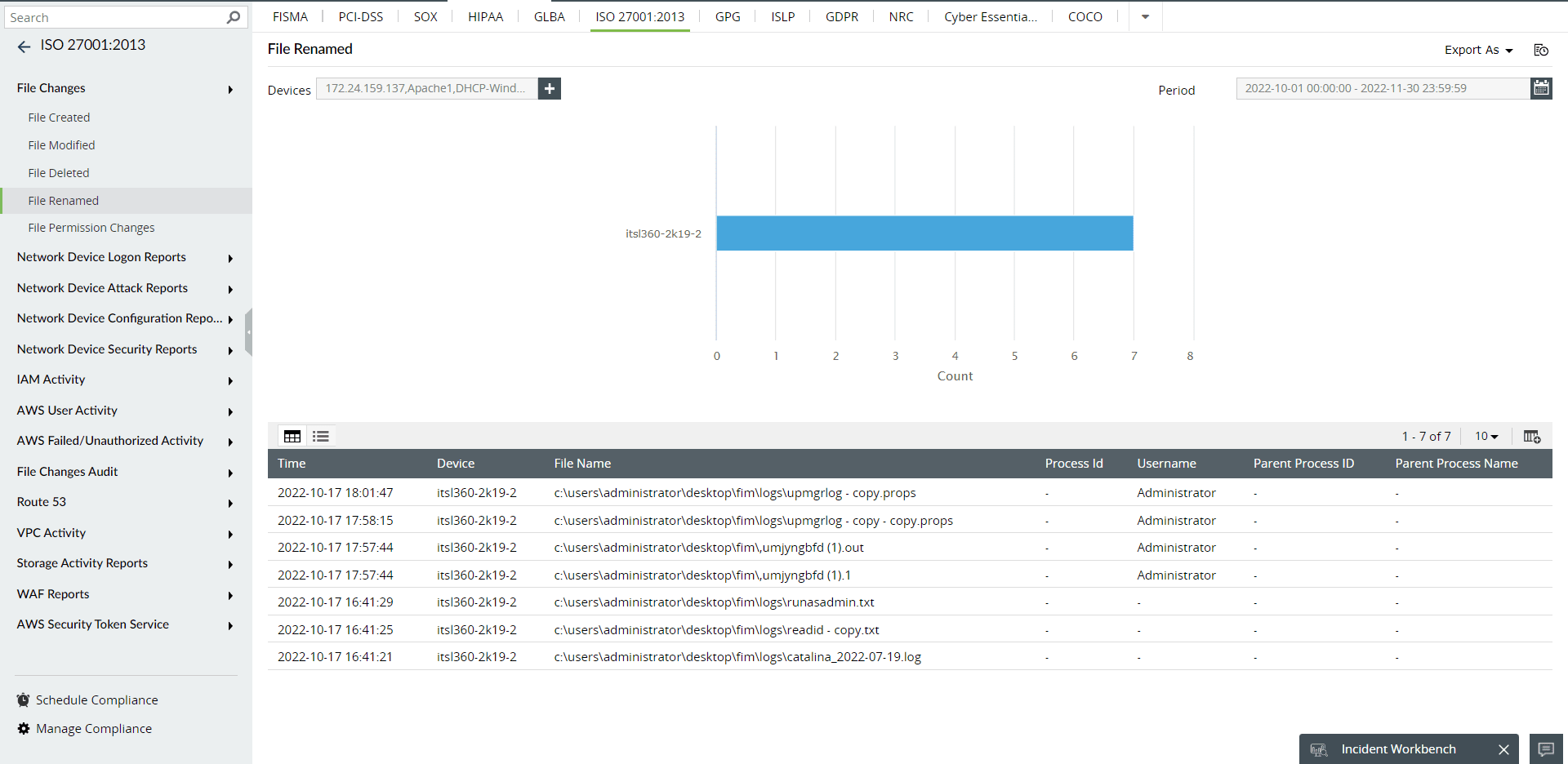
Figure 7: ISO 27001 reports on modifications made to files in Log360
To know how FIM helps in ensuring the requirements of the PCI DSS, check out this page.
Log360 can assist with meeting compliance standards in the following ways:
- Generate customizable, audit-ready reports for SOX, HIPAA, FISMA, the GDPR, the PCI DSS, GLBA, and much more (Fig. 8).
- Prior to external audits, ensure that high security levels are maintained by promptly identifying and addressing compliance concerns by generating customizable alerts.
- Preconfigure reports (based on user, business hours, file path, device, etc.) to audit your organization's specific requirements.
- Continuously monitor business-critical files and folders to maintain file accountability and integrity.
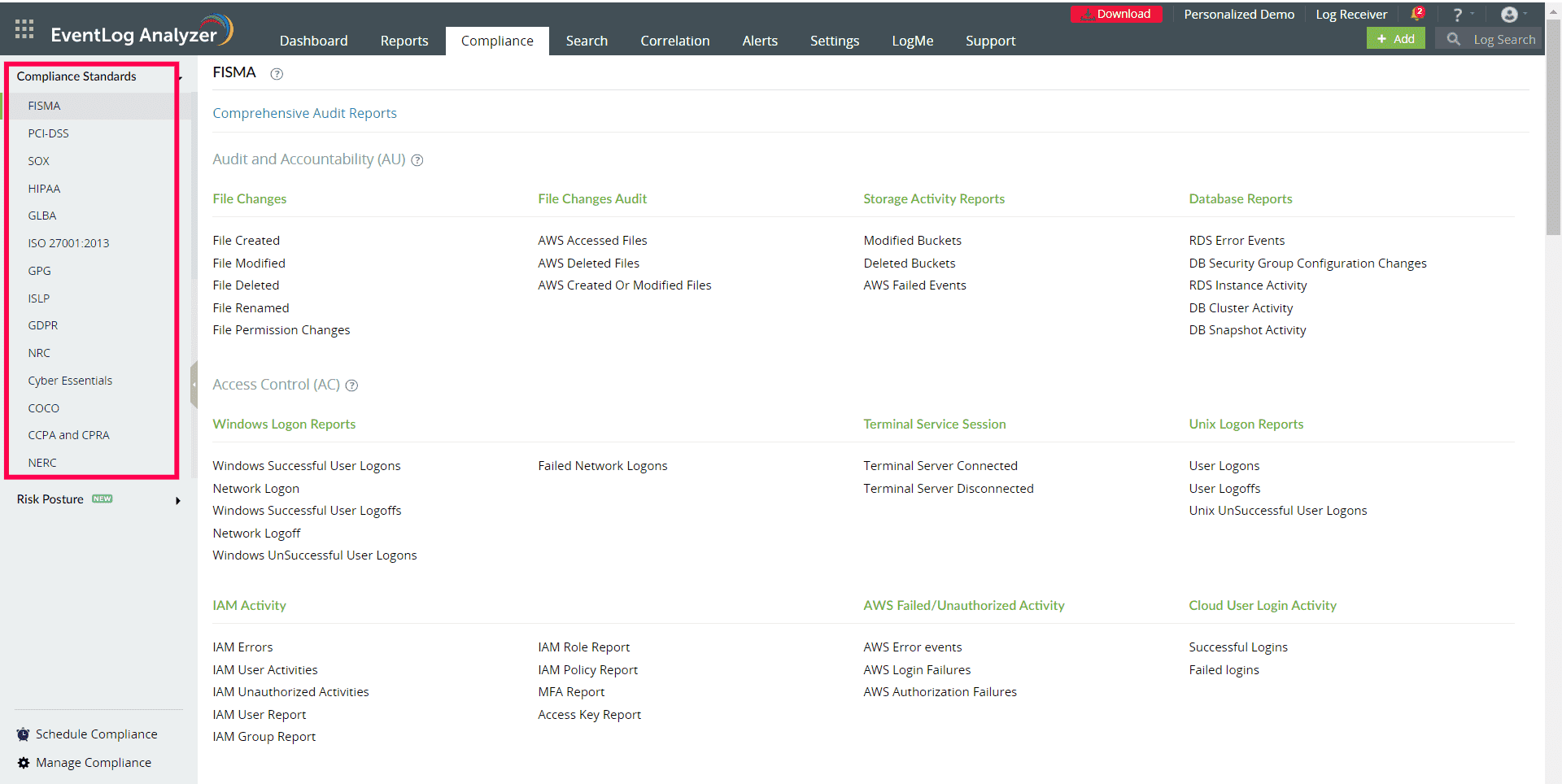
Figure 8: Compliance reports in Log360
To meet regulatory requirements and maintain compliance, FIM is a vital tool in each of these industries for monitoring and guaranteeing the integrity of sensitive data, systems, and settings. Organizations may bolster their security posture and exhibit compliance with industry best practices and regulatory standards by putting customized FIM solutions in place to meet their unique industry needs.
PCI DSS
To know more on how FIM helps organizations comply with PCI DSS's security and privacy requirements, check this page.
Ready for the next step?
Are you looking for ways to protect your organization's sensitive information from being misused? Sign up for a personalized demo of Log360, a comprehensive SIEM solution that can help you detect, prioritize, investigate, and respond to security threats.
You can also explore the solution on your own with a free, fully functional, 30-day trial of Log360.


